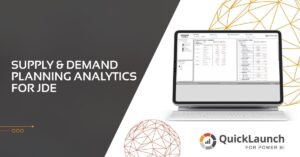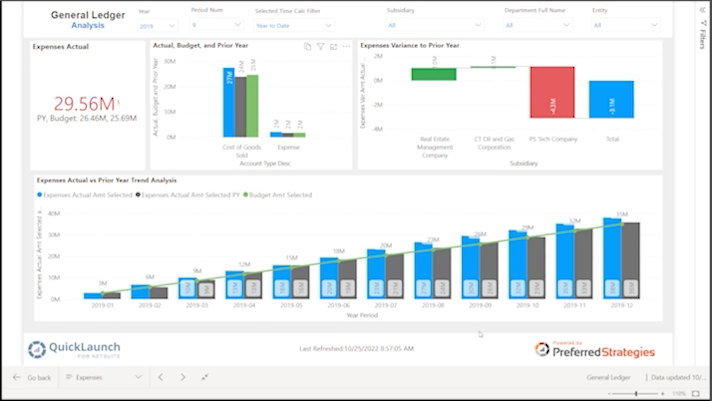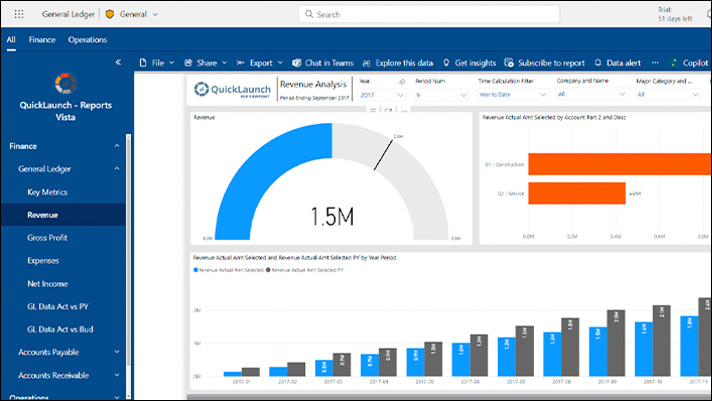
If “Digital Transformation” was the watchword in 2019, it will be the driving force in 2020—and beyond. This year organizations continued to adopt policies and technologies in efforts to become increasingly data-driven and establish a “data culture” within their companies. As data volumes continue to explode, and a growing number of employees require access to critical information, modern BI and self-service analytics have shifted from being a department-level concern to an enterprise-wide issue.
With 2020 upon us, these are the trends we see in the data analytics space for the year to come:
1. Self-service is here to stay. In fact, according to CIO, by 2024, 80% of digitally advanced organizations will replace the IT-centric model with a self-service model. Providing tools that are easily accessible and usable by business users to help them find and use corporate data allow the business to rapidly respond to changing market needs and competitive threats without the need to involve IT, but with the assurance that these solutions will be secure and compliant.
2. The use of modern BI and reporting tools will spread beyond finance teams. Feeling the pain of lengthy close times and clunky spreadsheets that aren’t up to the task, finance analysts are often the first to adopt modern BI and reporting tools. The right software can reduce the time it takes to close the books from days to hours, while empowering users to find data and build dashboards to answer their own questions rather than relying on IT.
Once other functional teams see the benefits that finance users realize by using self-service analytics tools such as Preferred Strategies QuickLaunch™ Microsoft® Power BI, they want to expand the use of these tools to Sales, Procurement, Manufacturing, Inventory, and beyond. We see the trend of cross-functional adoption of modern BI and reporting tools continuing—and accelerating—in 2020.
Learn how leading companies have reaped the benefits of self-service analytics.
3. Microsoft Power BI will continue to build its position as the self-service analytics tool of choice. In Gartner’s 2019 Magic Quadrant for Analytics and Business Intelligence Platforms, Microsoft was positioned as a leader, and furthest to the right for completeness of vision within the Leaders quadrant. Microsoft continues to make huge investments in Power BI, demonstrating its commitment to innovation. Power BI offers comprehensive analytics capabilities paired with ease of use, plus the security, governance, and compliance features to keep data secure and control how it is accessed and used.
Get the Gartner 2019 Magic Quadrant for Analytics and Business Intelligence Platforms.
4. AI and machine learning will increasingly be democratized as analytics tools, such as Power BI, incorporate built-in machine learning capabilities. Preferred Strategies QuickLaunch combined with Power BI and Azure AI enables natural-language queries (NLP), automated advanced analytics, smart data visualization, and more.
Learn more about machine learning for your ERP data.
5. The Citizen Data Scientist will have a greater impact on business outcomes
Digital transformation is a journey, and at each stage the impact on the business is more significant. Reporting can tell you what happened. Modern BI and analytics can tell you why something happened. Data science can help predict what will happen based on historical precedent and outside influence. And Prescriptive Analytics can automatically inform you of what you should do when certain conditions are met.
The more business users in your organization that can gain this level of insight, the more impact it will have on your business. To achieve this level of insight, your data – and the science surrounding it – needs to be more accessible. Accessibility is the principal behind the concept of the Citizen Data Scientist, aptly described by Carlie Idoine of Gartner in the article below.
Read more about citizen data scientists – and why they matter.










